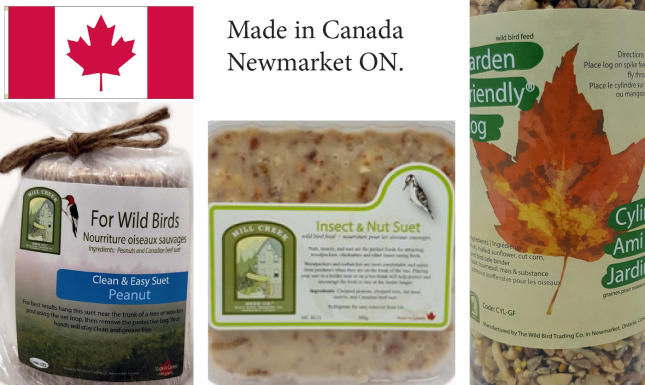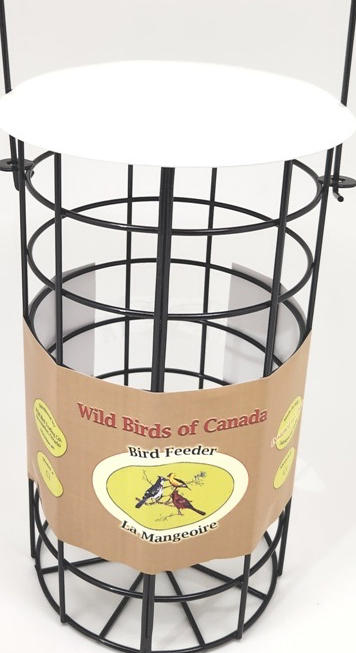
Bird Feeding Clean & Easy
Satisfy your birds' appetites and keep the ground beneath your feeders free of seed debris with tidy dining options. Our seed cylinder choices and suet options are easy to use and highly popular with birds. Cylinders such as our Super Winter Blend and No-Mess Blend have no shells and will leave no mess. Use these cylinders with one of our Tidy Feeding style feeders to keep the food off the ground. Enhance your birds' diet with one of our WBU exclusive high-protein suets. Jim's Birdacious Bark Butter® is a high-protein source consumed by over 161 different species.
15% OFF* Seed Cylinders Suet Cylinders Suet Cakes All Bark Butter
- *DSC members receive the Club discount of 15% plus an additional 5% discount.
- *Offer not valid on previous purchases
- Offer valid in-store or online. To receive the online discount you must enter the code CYLINDERSUETSALE
Offer valid now thru February 16, 2025
Canadian Made Cylinders and Suets
Mill Creek Products from Newmarket, ON.
We remain committed to supporting our local Canadian manufacturers. Mill Creek offers an excellent range of seed cylinders and suet products. Explore their product lines during the sale.

BONUS Special
Seed Cylinder And Feeder Bundle
Get a Winter Super Blend Seed Cylinder and a covered mesh seed cylinder feeder (as pictured) for the special price of $19.99
(regular price $30.98)

Why Winter Bird Feeding Can Help Save the Songbirds
Typically, feeders serve as a supplemental food source for songbirds. Studies have indicated that during the winter months, only 25% of a songbird's daily food intake comes from bird feeders. During periods of extreme cold and severe winter weather, songbirds may rely on feeders as a critical source of food that enables them to survive from day to day. A study based on house sparrows revealed the following relationship between temperature and the length of time a songbird can survive without food:
29º C = 67.5 hours -15º C = 15 hours
-29º C = 10 hours -34º C = 7 hours
Songbirds forage and eat food during the day. In February, songbirds have about 10 to 11 hours of foraging time, while the nights last about 13 to 14 hours. Songbirds must find enough quality high-calorie fatty foods during the day to ensure they can survive a 14-hour night. Feeding songbirds becomes critical when extremely cold conditions occur, as a reliable supply of energy-heavy food can the difference between life and death for a songbird. To stay warm, birds will expend energy very quickly, some losing up to 10% of their body weight on extremely cold nights. For perspective, a 200 lb would lose 20 lbs in one night!
Currently, we are experiencing a warm, and temperatures are hovering around 0º C, which reduces the amount of foodbirds require to survive. However, there is another great reason to keep your feeders full. A study in England found that songbirds with access to supplemental food during the winter will nest and lay their clutch of eggs earlier and fledge an average of one more chick per clutch than songbirds without access to supplemental winter food.
Food is the most essential element, providing songbirds with the energy, stamina, and nutrition they need. If you have not tried feeding them, now is a great time to start.

